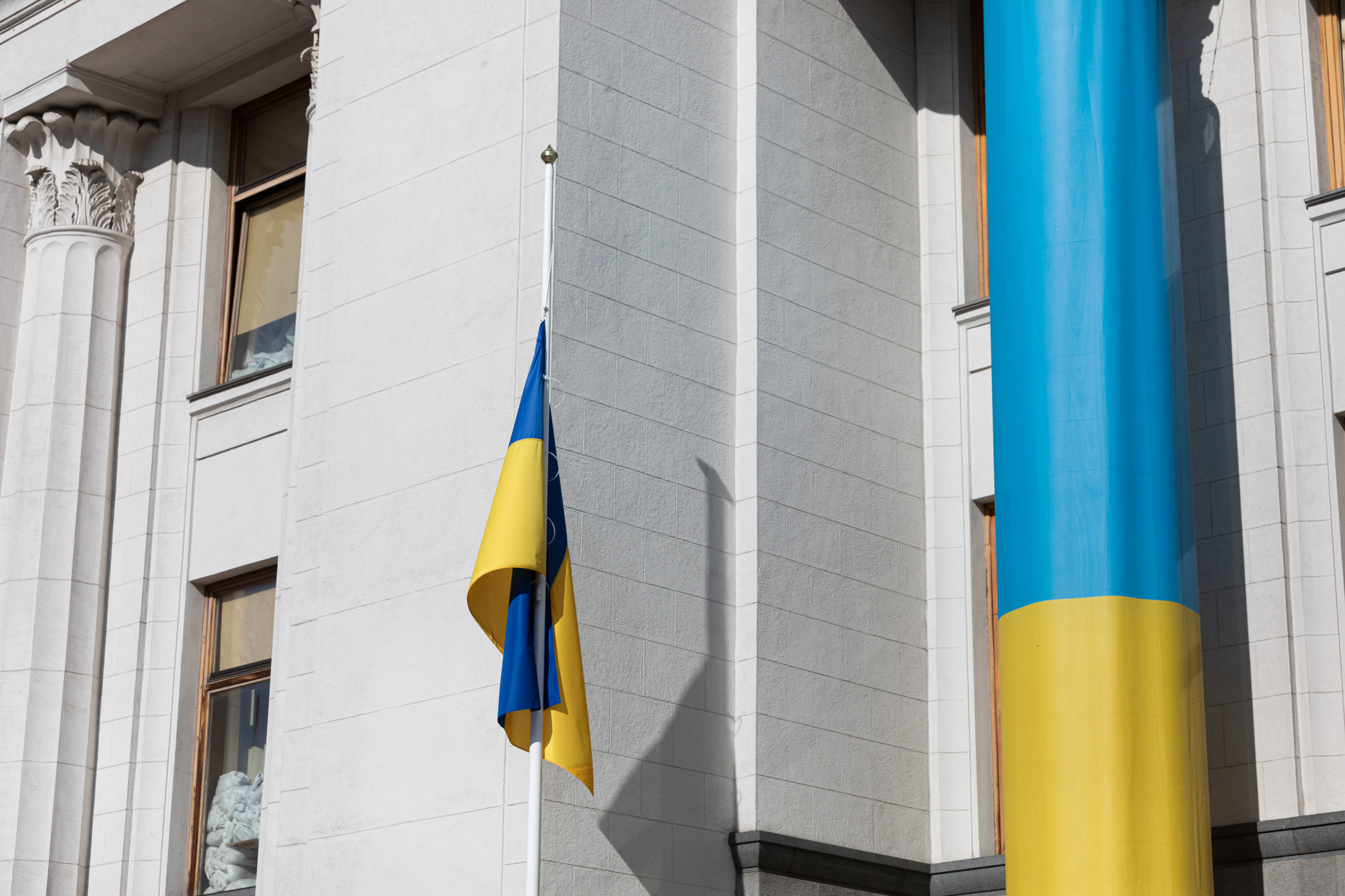Ukraine’s offensive into Kursk blew another hole in the myth of invincible, eternal Russia. There is no rallying around the flag, no end-of-the-world counterstrike, no military machine going into overdrive. Tragically, disproving this myth is paid in Ukrainian blood, sweat and tears. However, this enormous sacrifice could have been avoided if one was willing to face the facts about Russia and respond accordingly.
First, the narrative of “Putin’s war” is false. This war would not be possible without the wide popular support. Polls suggest that 75-80% of “simple Russians” consistently support the war against Ukraine. Over 600,000 Russians have already been killed or wounded in Ukraine, and over 500,000 are currently in the Russian army on Ukrainian soil. Most of these people voluntarily came to Ukraine to kill Ukrainians and to earn some money. These people have families who obviously approve of killing Ukrainians, otherwise they would not let their husbands and sons go to Ukraine – on the contrary, there are multiple phone calls intercepted by Ukrainian security forces, where family members even urge soldiers to commit war crimes. There are millions of people who work in the defense industry producing weapons to kill Ukrainians and tens of millions who pay taxes to finance the Russian war effort. Just like there was no “Hitler’s war”, there is no “Putin’s war”. This is a Russian war. Putin is not an aberration but a realization of the wishes of Russia’s general population, indoctrinated for generations in the myth of their superiority.
Second, Russia is an empire with a long history of aggression and oppression. For example, only during its modern post-1991 history, Russia occupied a part of Moldova in 1992, destroyed Chechnya in 1994-1996 and 1999-2009, attacked Georgia in 2008, Syria in 2015, and of course Ukraine since 2014. Russia attempted or fulfilled assassinations in the EU, as well as acts of sabotage and energy blackmail. At the same time, Russia has been erasing the identities of its own peoples. In 1914, Lenin described Russia as the prison of nations. 100 years later it is still a prison. No wonder that the Russian society is atomised and has low trust.
Third, this empire cannot accept a sovereign Ukraine. In a telling example, Yevhen Hrytsyak, a leader of an uprising in the Norilsk GULAG, recalled that Vladimir Zaonegin, a leader of the Russian anti-bolshevik circle in the same GULAG, refused to even discuss the idea of independent Ukraine. A prisoner wants to keep a whole country in prison! In 1917 Volodymyr Vynnychenko, a leader of Ukraine in 1918-1920, observed, “The Russian democrat ends where the Ukrainian question begins.” We can add that a Russian democrat ends where any national question begins. For example, Mikhail Khodorkovskyi, after spending 10 years in Russian jail, stated that he would go to war if North Caucasian nations (primarily Chechnya) wanted to regain their independence because “we conquered this land thus it is our land”.
Fourth, Russia is a colossus with feet of clay. Russian society is intimidated and paralyzed to a point where even foreign troops on their soil did not generate any organized response. The Russian economy is a gas station vulnerable to fluctuations in oil revenue. The Russian population is shrinking. Capital is fleeing the country. Russia is falling behind technologically. Just as the giant Ottoman empire was the “sick man of Europe” in the 19th century, Russia is on life support with energy money. Indeed, in the first half of 2024 Russia raised $65 billion in oil and gas exports. The main buyers are China and India but Europe also increased its purchases of Russian LNG or pipeline gas “masked” as gas from Azerbaijan. And foreign companies (the majority from the EU or US) pay about $20 billion per year in taxes to the Russian government. Take away this money and Russia is bankrupt.
These basic facts raise a number of important questions. How can Russia become a democracy if its entire history since the 15th century has been only tyranny and genocides? How can it become a “civilized” state if even so-called “liberals” support Russia’s war on Ukraine (e.g. Ilya Yashyn fulfilled the recruitment plan in a Moscow conscription office of the Russian army) and effectively call for continuing this war (because lifting sanctions will provide Russia with more resources to wage the war)? What can stop Russia’s war of aggression?
Answers to these questions may be painful.
First, sanctions on Russia should be strengthened. Only exhaustion of Russia’s resources (or a military defeat) may force Putin to think of a ceasefire. Recall that the Russian Empire collapsed twice (1917 and 1991), and almost fell in 1905-1907 because the economy was exhausted and national movements did the rest. The latter means that the world should support the right for self-definition of nations occupied by Russia. This may or may not lead to the partitioning of Russia. But “normalization” of the Russian state is impossible while both the Russian people and the state consider Chechens, Buryats, Bashkorts and other indigenous peoples inferior to Russians. If history is any guide, another collapse of Russia will liberate millions of people from the empirical yoke.
Second, to prevent the resurrection of the Russian mafia state, Western governments should identify and confiscate assets of the Russian state and oligarchs. Apart from funding Ukraine’s defense and reconstruction needs, this will reduce corruption in the West. Furthemore, the governments of democratic countries should either ban their citizens from traveling to Russia and Belarus or warn them that they do this at their own risk. The supply of voluntary hostages to Russia must stop.
Third, it is a fantasy to think that the Russian opposition exiled in the West can take over the country after Putin is out. They have little if any influence on the ground. Furthermore, they remain politicians and thus they associate themselves with the ordinary Russians, i.e., those folks who support the war in Ukraine. Their calls to lift sanctions on “simple Russians” or Russian oligarchs demonstrate that they want to preserve the status quo rather than revamp the country. Recall that Putin started as a reformer but ended as a war criminal.
Finally and most importantly, Ukraine should be provided with military and economic means necessary to defeat Russian aggression. Dialogue and accepting differences are not in the DNA of the Russian empire. One may fancy negotiations and trades with Putin or his successors but only hard force can tame and bring change to the empire. This is the only way to ensure durable global security and peace.
And to those who fear the disintegration of Russia, we say that the age of empires ended a long time ago. In many ways, Russia is a dinosaur. Because wars accelerate the demise of “great powers”, one would be well advised to prepare for the overdue funeral of the last empire in Europe.
Photo: depositphotos.com/ua/
Attention
The authors do not work for, consult to, own shares in or receive funding from any company or organization that would benefit from this article, and have no relevant affiliations




